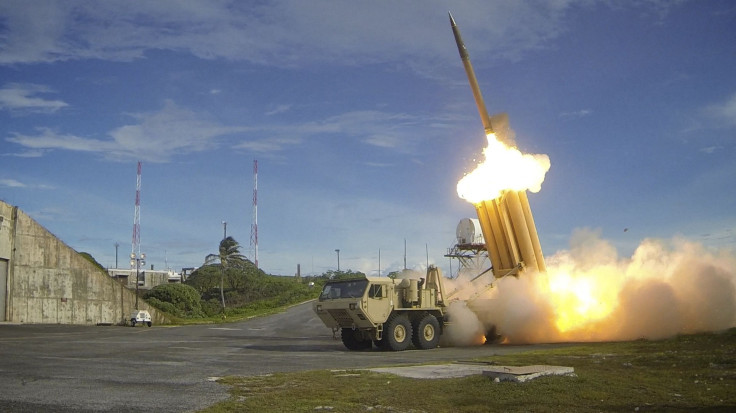THAAD In Korean Peninsula: South Korea, US Planning To Deploy Anti-Missile System By 2017 End, China Opposes Move

UPDATE: 3:08 a.m. EDT — Russian foreign ministry said Friday that the deployment of a U.S. anti-ballistic missile system in South Korea will only aggravate tensions in the Korean Peninsula.
“Such actions, no matter how they are explained, very negatively affect global strategic security, adherence to which is so often discussed by Washington. They may also result in escalation of tensions in the region, new difficulties for resolving acute problems of the Korean Peninsula, including the task of its denuclearization,” the foreign ministry said, Russia's Tass news agency reported.
Russia also urged South Korea and the U.S. to “weigh all circumstances and prevent any unreasoned actions which may lead to tragic and irreversible consequences for the situation both in North East Asia and beyond.”
Original story:
The United States and South Korea have agreed to install an advanced missile system in the Korean Peninsula to tackle neighboring North Korea’s nuclear and missile threat, the two countries said Friday. The move triggered a sharp response from China that has been strongly opposing the deployment of the Terminal High Altitude Area Defense.
The United States and South Korea have been carrying out "formal consultations regarding the feasibility of a Terminal High-Altitude Area Defense (THAAD) battery operated by U.S. Forces Korea (USFK) since early February," South Korea’s Defense Ministry and the U.S. Defense Department said in a joint statement.
“Based on these consultations, the ROK [Republic of Korea] and the United States made an Alliance decision to deploy THAAD to USFK as a defensive measure to ensure the security of the ROK and its people, and to protect Alliance military forces from North Korea's weapons of mass destruction and ballistic missile threats,” the statement said, adding, "When the THAAD system is deployed to the Korean Peninsula, it will be focused solely on North Korean nuclear and missile threats and would not be directed towards any third party nations."
South Korea is planning to deploy the anti-missile system “as soon as possible.” Seoul’s defense ministry said that both the countries aim to make THAAD operational by the end of 2017, South Korea's Yonhap News Agency reported. Seoul, which has substantial trade ties with China, has previously denied any formal discussion about the installation of THAAD, which can reportedly shoot down short-, medium- and immediate-range ballistic missiles.
Beijing reacted to the latest development urging Seoul and Washington to reconsider their plan. The deployment “doesn’t help achieve the objective of denuclearization in the peninsula, doesn’t benefit maintaining peace and stability in the peninsula,” China’s foreign ministry said in a statement, cited by Bloomberg. “It’s going toward the opposite direction of solving the problem via dialogue and negotiation.”
China had supported the sanctions by the United Nations Security Council against the reclusive country for its nuclear test and a long-range rocket launch this year. However, the world’s second-largest economy maintained its opposition to THAAD citing security issues. Beijing has consistently said that the THAAD missile system could be used to monitor its missile launches as far inland as Xian in the northwest.
Previously, Russia had expressed concern over the missile system’s deployment. Moscow said in April that the installation will create a threat to its security.
Meanwhile, North Korea condemned the first-ever U.S. sanctions imposed on leader Kim Jong Un. Pyongyang called the sanctions an “open declaration of war” and cautioned Washington that the East Asian nation will cease all diplomatic channels with the U.S. until the sanctions were revoked.
“This is the worst hostility and an open declaration of war against the DPRK [Democratic People’s Republic of Korea],” North Korea’s foreign ministry said, according to the official Korean Central News Agency. It also termed the sanctions against Kim as the “worst crime that can never be pardoned.”
On Wednesday, the U.S. Treasury held Kim directly responsible for violations in his country. This led to freezing of any property the leader or the 10 other top North Korean officials have in the U.S.
© Copyright IBTimes 2024. All rights reserved.












